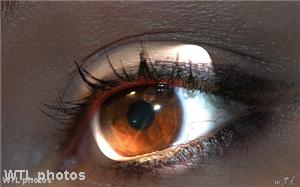![]()
Researchers in Australia are testing the effects of special
orthokeratology contact lenses in reducing the progression of myopia (short-sightedness) by gently reshaping the eye at night, reports Cosmos magazine.
One-quarter of Australian adults are affected by myopia, for which there is currently no preventative treatment.
But now, optometrist and scientist Helen Swarbrick, from the University of New South Wales in Sydney, is researching
orthokeratology treatment in children.
The
corrective contact lenses are worn overnight and taken out during the day to provide corrected
natural vision without the need for conventional contact lenses or glasses.
They gently reshape the eye, reducing the effects of myopia and have been shown to slow down the deterioration process in children by acting in a similar way to dental braces.
Orthokcorrective contact lenses are only used by a small proportion of Australian adults with myopia, and only as a temporary solution.
Ms Swarbrick believes their use has been held back due to a lack of detailed research.
She told the news provider: "Research is needed to confirm whether this is an effective way of controlling myopia [in children]."
Myopia stems from the elongation of the eye which causes light to be refracted in front of the retina, as opposed to onto it.
Pauline Cho, a contact lens specialist at the Hong Kong Polytechnic University, found in 2005 that
orthok contact lenses could slow this elongation in children.
Dr Jeffrey Michelman, a doctor of optometry at the Invasion Optometric Center in Los Angeles, recently praised overnight contact lenses and said that they were especially helpful for people with active lifestyles.
By Nick Howard
Eye Health: Find out if overnight contact lenses will suit you.


